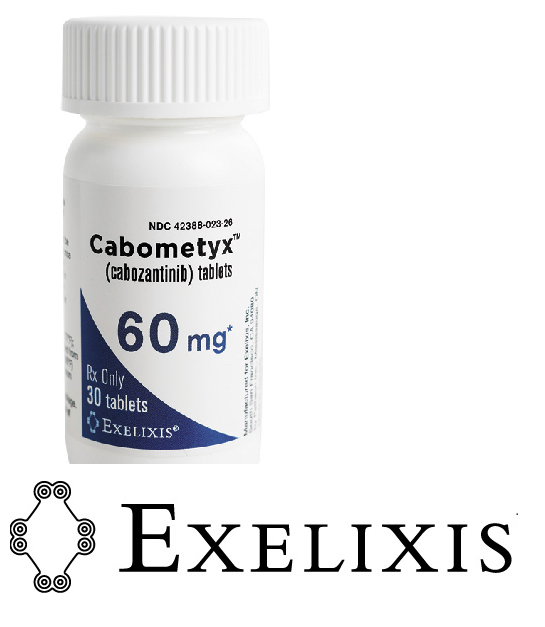The Ministry of Food and Drug Safety approved Friday Exelixis’ kidney drug Cabometyx, ahead of Bristol-Myers Squibb’s blockbuster Opdivo, as a second-line treatment for renal cell carcinoma (RCC).

The approval allows Korea’s advanced RCC patients previously treated with vascular endothelial growth factor tyrosine kinase inhibitor (VEGF TKI) to use Exelixis’ top-selling drug that accounts for almost 93 percent of its product sales.
The ministry gave it orphan drug status last year. It gained the U.S. FDA approval in April 2016.
The kinase inhibitor (ingredient: cabozantinib) is the first therapy to demonstrate a clinically meaningful and statistically significant progression-free survival (PFS) benefit over the current standard of care – Novartis’ Afinitor (ingredient: everolimus) – according to clinical findings.
A randomized, open-label METEOR trial dividing 331 advanced RCC patients into a Cabometyx group and 322 patients in an everolimus group showed the drug had a median PFS of 7.4 months compared to 3.8 months with Afinitor, demonstrating a 42 percent reduction in the risk of progression or death.
The median overall survival (OS) was also 21.4 months in the Cabometyx arm versus 16.5 months for the Afinitor arm, indicating a 34 percent reduction in the risk of death.
Ipsen Korea, the local offshoot of the French drugmaker, will import and sell the drug in the domestic market, the company said.
Cabometyx is also indicated for the same RCC patients as BMS’ Opdivo-Yervoy combination treatment currently in phase 3 studies. Recent research findings from BMS showed the Opdivo-Yervoy combination treatment showed a median PFS of 11.6 months while OS data has not yet been reached.
BMS’ positive clinical results sent Exelixis’ shares down around 9 percent earlier this month, which was subsequently buoyed by the National Comprehensive Cancer Network listing Cabometyx as the first recommended treatment for kidney cancer patients at poor, or intermediate, risk.
Experts are now keeping tabs on whether Exelixis’ top-selling drug will grab significant market share in Korea before BMS releases more news on kidney cancer clinical trials.
Meanwhile, Exelixis submitted a supplemental new drug application (sNDA) for Cabometyx to the U.S. FDA last month as a first-line treatment for patients with previously untreated RCC.
The company submitted the sNDA based on the CABOSUN trial, which divided 330 patients into a cabozantinib group and 328 patients in an everolimus group. Results showed median PFS to be significantly higher in the Cabometyx arm at 7.4 months versus 3.8 months in the everolimus arm. Median OS was also greater in the former (21.4 months versus 16.5 months) with confirmed response rate being 17 percent in the cabozantinib arm and 3 percent in the other.

